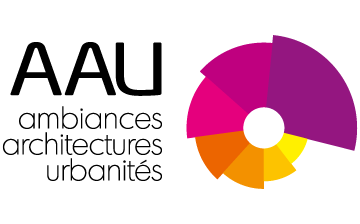L’architecture d’un métier. Trajectoires d’étudiants architectes entre socialisation, savoir agir et insertion
The architecture of a profession – The study of students of architecture, from entrance into formal training, formal education and career placement.
Bettina Horsch - Thèse de doctorat soutenue en 2021
Encadrement : Directeur de thèse Laurent Devisme en codirection avec Fréderic Charles, professeur à l’Université de Picardie
Financement : Salariée
FR
Ce travail de recherche tente d’éclairer les enjeux de la formation initiale des futurs architectes afin de comprendre les processus d’orientation, de socialisation et d’insertion qui interviennent chez les individus qui décident de devenir architecte. Partant du constat que le métier d’architecte a profondément évolué ces dernières décennies, nous étudions la manière dont les établissements d’enseignement supérieur en architecture, plus particulièrement l’école nationale supérieure d’architecture de Nantes, s’adaptent à ces évolutions. Les transformations se traduisent dans les trajectoires scolaires des étudiants, dans les rapports différenciés qu’ils entretiennent à la formation ainsi que dans la manière dont ils essayent de construire leurs parcours professionnels. La méthodologie de recherche repose sur un corpus à la fois quantitatif et qualitatif : la passation d’un questionnaire auprès du public étudiant ainsi que des entretiens menés avec des étudiants en formation et des anciens étudiants de l’ENSA Nantes quelques années après leur diplomation. La structuration de la thèse en quatre parties suit la trajectoire d’un futur architecte : une première partie sous forme d’état de l’art éclaire les enjeux auxquels font face la profession et les écoles ; une deuxième partie met au jour les propriétés sociales, scolaires et culturelles des étudiants et leurs motifs d’engagement vers le métier d’architecte ; une troisième partie s’intéresse aux processus de socialisation dans l’établissement et à la construction du projet professionnel de l’étudiant ; une dernière partie analyse l’accès à l’emploi et les modalités d’insertion, avec une focale sur la licence d’exercice et la figure de l’architecte-ingénieur.
EN
This research aims to highlight the stakes of the initial education received by future architects to understand the processes of vocational guidance, socialisation and professional integration in play during their training.
Having understood that the profession of architect has changed deeply these past decades, we will study the way graduate schools of architecture, in particular the Graduate School of Architecture of Nantes, adapt to such evolutions. The transformations are expressed in the students’ academic trajectories, in the differentiated relationships that they have with their training, and in the way they try to build their professional careers.
The research methodology will rely on a quantitative and qualitative corpus: a questionnaire filled out by students and interviews carried out with current and past students of ENSA Nantes, a few years after their graduation. The structure of the thesis, in four parts, follows the path of a future architect. The first part is a state of the art that will highlight the challenges encountered by the profession and schools. The second part will focus on the social, academic and cultural properties of the students and their reasons for becoming architects. The third part will pay attention to the processes of socialisation at school and the construction of the students’ professional project. The last part will analyse the students’ access to employment and the modalities of professional insertion, with a focus on the licence to practice and the figure of the architect-engineer.
